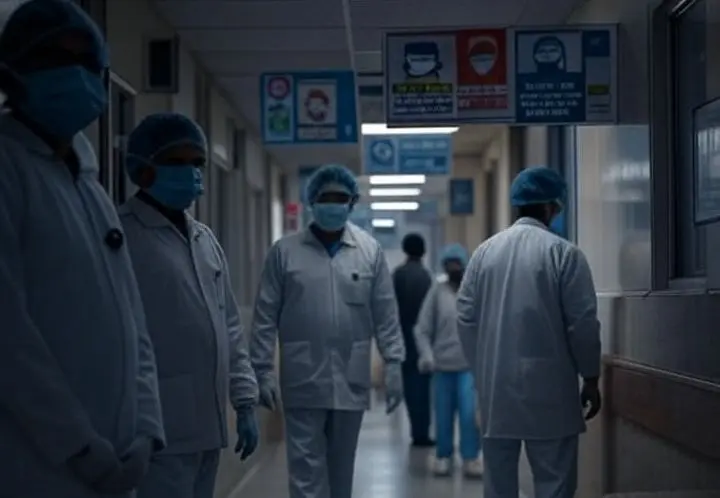In a recent health update, the national capital Delhi has recorded 104 active COVID-19 cases, marking a slight increase in infections. Just a week ago, 99 active cases had been successfully treated, suggesting a wave of recoveries before this new rise.
Between May 19 and May 24, the city witnessed a noticeable jump in COVID cases. However, health officials confirmed that many of the newly infected patients have recovered or are recovering steadily, with no serious threats reported.
Uttar Pradesh Resident Tests Positive in Delhi After Return from Travel
55-Year-Old Woman Diagnosed with COVID-19 After Religious Trip to Jammu-Kashmir
A 55-year-old woman from Urrai, Uttar Pradesh, tested positive for COVID-19 during her visit to Delhi. She had recently returned from a religious trip to Jammu and Kashmir on May 10. Upon return, she began experiencing breathing difficulties, prompting her family to admit her to a hospital in Padunkot.
As her condition worsened, she was referred to Delhi’s Safdarjung Hospital (ESIC) for advanced treatment. Subsequent tests confirmed she was COVID-19 positive, and she was placed in isolation. Her condition is now reported to be stable, and she has been advised to remain under observation.
No Cause for Panic, Say Officials; Continued Vigilance Advised
COVID-19 Symptoms Can Be Managed at Home Unless Severe, Medical Experts Reassure Public
Health Minister Saurabh Bhardwaj and Dr. Neeraj Nischal of AIIMS emphasized that there is no need for panic. They advised the public to stay alert but calm, reiterating that most COVID-19 symptoms are mild and manageable at home without strong medication.
“There is no need for antibiotics or panic buying of medicines,” said Dr. Nischal. He stressed that only those with serious symptoms such as breathlessness should report to hospitals immediately.
Government Hospitals Prepared for Testing and Isolation
Priority Testing for Patients with Respiratory Symptoms; Isolation Wards Ready
The Delhi Government has instructed hospitals to prioritize COVID-19 testing for patients showing severe respiratory symptoms. With rising surveillance and preparedness, authorities aim to catch new infections early and prevent larger outbreaks.
Hospitals have been advised to conduct tests even for symptomatic flu-like conditions, ensuring no case goes undetected.





